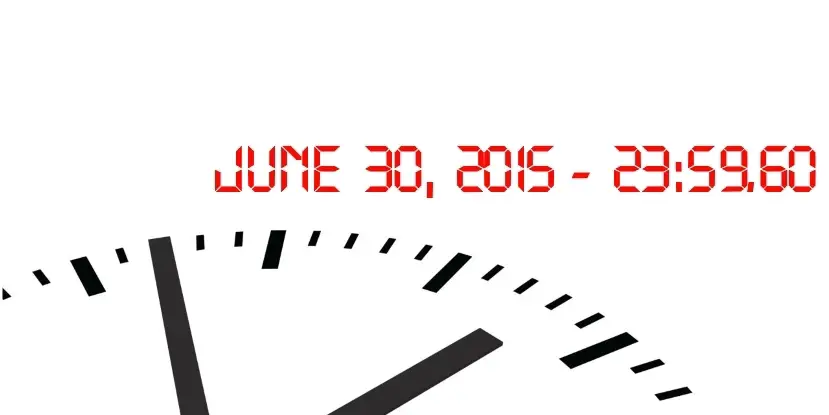Typically there are 86,400 seconds in a day, at least, if you Google such things. However, thanks to what people are calling a leap second, tomorrow will have 86,401 seconds in the day. That’s right, the clock will be gifted with an extra second. Like our leap year where we get an extra day every four years, tomorrow’s extra second is done to keep our clocks to within 0.9 seconds of the earth’s rotation.
Leap seconds have been introduced to our concept of time to compensate for the ongoing slowdown of Earth’s rotation. Depending on who you ask, the Earth’s rotation could be caused by a number of things, be it earthquakes, volcanoes or the moon’s orbit around the planet. While extremely gradual, the slowing can add up over long periods of time and cause a bit of chaos with our preconceived notions of time. As such, the leap seconds helps us avoid such things. Even so, it can cause a few issues for computers.
Computers, sticklers in their routines, are programmed for an 86,400 second day. The conventional time is 23 hours, 59 minutes and 59 seconds, however, with the introduction of the leap second, the time becomes 23 hours, 59 minutes and 60 seconds. This can cause computer systems’ processes to be thrown out of whack, specifically those programs and apps based on Unix, as the software predates the creation and establishment of the leap second.
While similar to the Y2K dilemma, the leap second isn’t seen as such a big issue and will have the potential of creating a few outages of your favorite web sites or cause flight delays. The last time we had a leap second — June 30, 2012 — web sites like Reddit, Yelp and Foursquare had outages and 400 flights were delayed in Australia. Airport workers had to conduct check-ins by hand instead of using computers.
Even so, the issues can be somewhat isolated, and there’s very little chance of a larger-scale shutdown. Still, there are solutions being created. For instance, Google uses a handy little trick called a leap smear where it adds a millisecond or two to a computer’s clock gradually over the course of a day. This allows computers to add an additional second without incident.
While this is a band-aid, a more permanent solution would be to just get rid of leap seconds entirely. The International Telecommunications Union, the folks who set international time standards, will discuss just that at the 2015 World Radio-communication Conference in Geneva in November of this year.
[button link=”http://time.com/3666522/leap-second/” icon=”fa-external-link” side=”left” target=”blank” color=”285b5e” textcolor=”ffffff”]Source: Time[/button]Last Updated on November 27, 2018.










